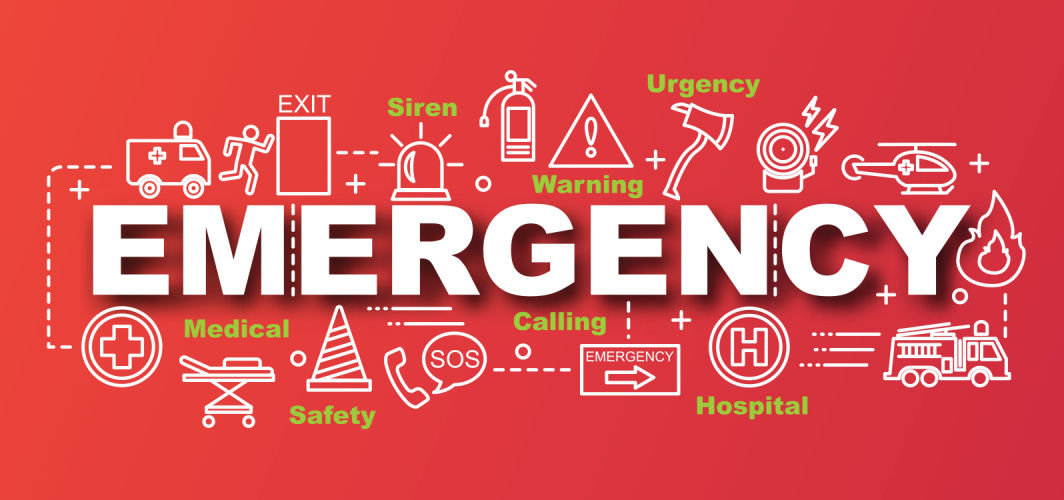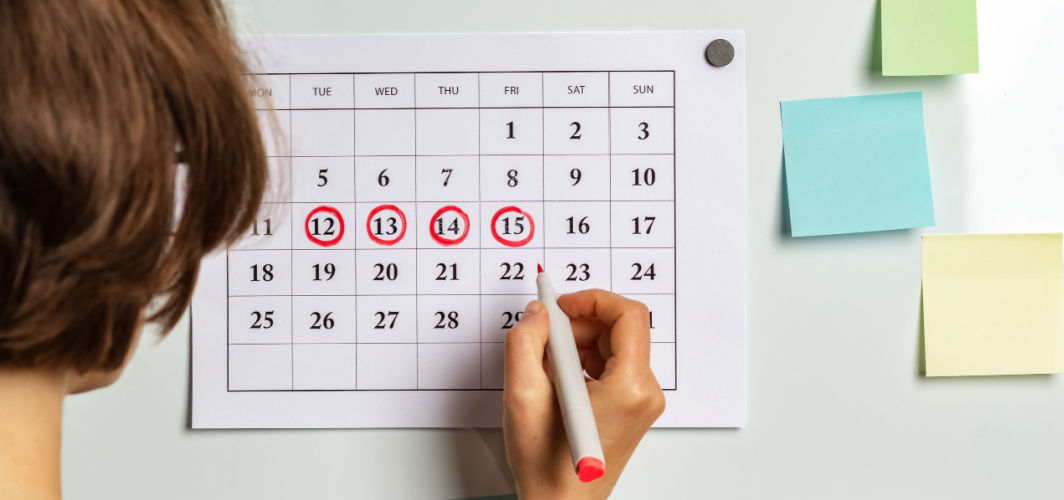Diabetes Management
Tips To Recognize And Manage Diabetic Emergencies
4 min read
By Apollo 24|7, Published on - 17 May 2023, Updated on - 23 August 2023
Share this article
0
2 likes

Diabetes, a chronic disease affecting millions of individuals globally, necessitates constant attention and awareness. Recognising and responding to diabetic emergencies such as hypoglycaemia and hyperglycaemia is one of the most important components of diabetes management. These two disorders can emerge unexpectedly and if not treated promptly, can result in severe consequences such as seizures, coma, and even death.
Understanding Hypoglycaemia And Hyperglycaemia
Regardless of the type, both type 1 & type 2 diabetic people can experience hypoglycaemia and hyperglycaemia.
Hypoglycaemia, known as low blood sugar, occurs when blood sugar levels fall below the normal range (typically below 70 mg/dL). It is associated with the use of insulin or other drugs that lower blood sugar levels. Hypoglycaemia can also occur by eating too little or exerting too much. It can cause a variety of symptoms such as:
- Trembling
- sweating
- confusion
- loss of consciousness
Hyperglycaemia, known as high blood sugar, occurs when blood sugar levels rise above the normal range (typically above 180 mg/dL). It is associated with uncontrolled diabetes and can be caused by a variety of circumstances such as skipping medications, consuming too many carbohydrate-rich meals or not exercising enough. It can cause a variety of symptoms including:
- severe thirst
- frequent urination
- exhaustion
- impaired vision
Both these conditions can be dangerous and necessitate immediate medical attention. People with diabetes must monitor their blood sugar levels regularly and consult their healthcare provider to successfully manage their condition & avoid complications.
Coping with Hypoglycemic Emergencies
Here are some recommendations for dealing with hypoglycemic emergencies:
- Consume something sweet such as fruit juice, candy or glucose tablets.
- Check the blood sugar level to ensure it has returned to normal.
- If eating or drinking was not feasible or the symptoms do not improve after 15 minutes, seek immediate medical attention.
- Always keep a supply of quick-acting carbs on hand such as glucose gel or pills.
- Wear a medical alert bracelet or necklace that indicates a person has diabetes.
- Educate relatives and friends on hypoglycaemia's signs and symptoms, as well as what to do in an emergency.
- On recurrent episodes of hypoglycaemia, talk to your doctor about changing the prescription.
Coping with Hyperglycemic Emergencies
Hyperglycaemia, or high blood sugar, is a major emergency that can occur in diabetics.
If not treated, it can progress to diabetic ketoacidosis (DKA), a potentially fatal illness that needs immediate medical care. Here are some ways to deal with hyperglycemic emergencies:
- Check the blood sugar level and change the medicine or insulin dose as per the doctor's advice.
- Drink plenty of water to stay hydrated.
- Exercise can help lower blood sugar levels but before beginning or changing your exercise regimen, consult with a doctor.
- If DKA symptoms develop such as nausea, vomiting, trouble breathing or fruity breath, seek medical assistance right away.
- Keep a note of the blood sugar levels and any symptoms to discuss with the doctor during routine check-ups.
- Work with the doctor to create a personalised diabetes treatment strategy that includes blood sugar monitoring and adjustments to medication.
Lifestyle Changes to Manage Diabetes
Making lifestyle changes is an essential part of managing diabetes. Here are some tips you can follow:
- Eating a healthy diet: A balanced diet should include whole grains, fruits, vegetables, lean proteins and healthy fats.
- Regular exercise: Exercise can help manage diabetes by reducing blood sugar levels and improving insulin sensitivity. A diabetic should aim for at least 30 minutes of moderate-intensity exercise most days of the week or as recommended by their doctor.
- Quitting smoking: Smoking can increase the risk of diabetes complications such as heart disease and nerve damage. Therefore, diabetics must quit smoking.
- Reducing stress: Stress can affect blood sugar levels, therefore, diabetics should engage in activities such as yoga, meditation or deep breathing exercises to help manage stress.
- Getting enough sleep: Lack of sleep can increase insulin resistance in the body. Therefore, diabetics should aim for 7-8 hours of sleep each night.
Diabetes management necessitates proactive measures to avoid complications and maintain a healthy lifestyle. If you or someone you know is struggling to manage diabetes, it's important to speak with a healthcare professional.
Consult Apollo's Expert Diabetologists
FAQs
Q. What causes hypoglycaemia?
Hypoglycaemia is commonly caused by taking too much insulin, skipping meals or snacks and increasing physical activity without adjusting medication.
Q. Can hyperglycaemia be cured?
While hyperglycaemia cannot be cured, it can be managed through lifestyle changes and medication.
Q. Is diabetes genetic?
Yes, diabetes can pass through generations.
Q. Can stress cause diabetes?
While stress does not cause diabetes, it can make it more difficult to manage blood sugar levels.
Q. What are the symptoms of diabetic ketoacidosis?
Symptoms of diabetic ketoacidosis include excessive thirst, frequent urination, nausea, vomiting, confusion and a fruity odour on the breath.
Consult Apollo's Expert Diabetologists
You can also manage your diabetes like a pro with Apollo 24|7's 12-week empower programme.
Medically reviewed by Dr Sonia Bhatt.
Diabetes Management
Leave Comment
Recommended for you

Diabetes Management
Does Gestational Diabetes Lead to Type 2 Diabetes?
After childbirth, blood sugar levels in the mother typically normalize within six weeks. However, according to the Centers for Disease Control and Prevention (CDC), approximately 50% of women with gestational diabetes may develop type 2 diabetes later in life. The risk can be reduced by maintaining a healthy weight, making healthy food choices, and engaging in regular physical activity.

Diabetes Management
How Do Menstrual Cycles Impact Blood Sugar Levels in Diabetes?
For individuals with diabetes, menstrual cycles introduce additional challenges in managing blood sugar levels. Hormone fluctuations during different phases of the cycle affect insulin sensitivity. While the menstruation phase usually maintains stable blood sugar levels, the follicular phase improves insulin sensitivity. Ovulation may lead to increased insulin resistance, and the luteal phase can cause insulin resistance to peak. To manage blood sugar during these cycles, regular monitoring, medication adjustments, a balanced diet, and consultation with healthcare providers are essential. Understanding these hormonal impacts empowers individuals with diabetes to achieve better control and complete well-being.

Diabetes Management
8 Important Tests for People with Type 2 Diabetes
Regular monitoring of various health parameters is extremely crucial for individuals with diabetes to prevent health complications. These include the HbA1c test to assess blood glucose management, blood pressure checks to monitor cardiovascular health, lipid profile tests to evaluate cholesterol levels, electrocardiograms to detect heart issues, eye examinations to prevent diabetic eye complications. Regular check-ups can help diabetics to effectively manage their overall health.
Subscribe
Sign up for our free Health Library Daily Newsletter
Get doctor-approved health tips, news, and more.
Visual Stories

8 Fruits That are Incredibly Healthy for Diabetes
Tap to continue exploring
Recommended for you

Diabetes Management
Does Gestational Diabetes Lead to Type 2 Diabetes?
After childbirth, blood sugar levels in the mother typically normalize within six weeks. However, according to the Centers for Disease Control and Prevention (CDC), approximately 50% of women with gestational diabetes may develop type 2 diabetes later in life. The risk can be reduced by maintaining a healthy weight, making healthy food choices, and engaging in regular physical activity.

Diabetes Management
How Do Menstrual Cycles Impact Blood Sugar Levels in Diabetes?
For individuals with diabetes, menstrual cycles introduce additional challenges in managing blood sugar levels. Hormone fluctuations during different phases of the cycle affect insulin sensitivity. While the menstruation phase usually maintains stable blood sugar levels, the follicular phase improves insulin sensitivity. Ovulation may lead to increased insulin resistance, and the luteal phase can cause insulin resistance to peak. To manage blood sugar during these cycles, regular monitoring, medication adjustments, a balanced diet, and consultation with healthcare providers are essential. Understanding these hormonal impacts empowers individuals with diabetes to achieve better control and complete well-being.

Diabetes Management
8 Important Tests for People with Type 2 Diabetes
Regular monitoring of various health parameters is extremely crucial for individuals with diabetes to prevent health complications. These include the HbA1c test to assess blood glucose management, blood pressure checks to monitor cardiovascular health, lipid profile tests to evaluate cholesterol levels, electrocardiograms to detect heart issues, eye examinations to prevent diabetic eye complications. Regular check-ups can help diabetics to effectively manage their overall health.
